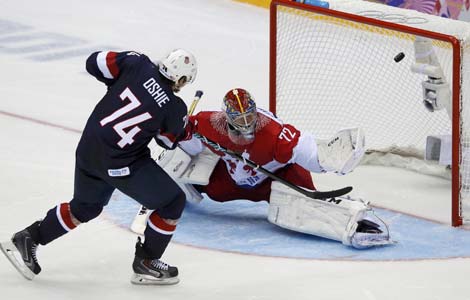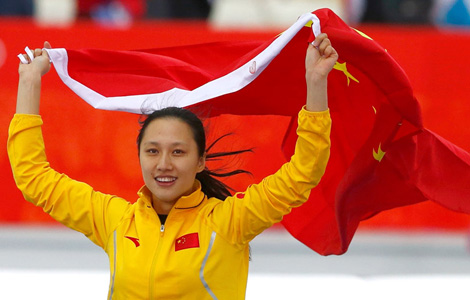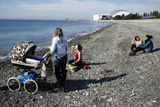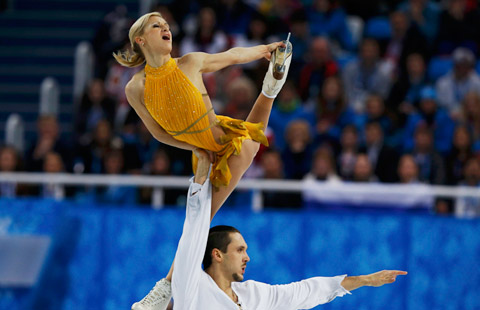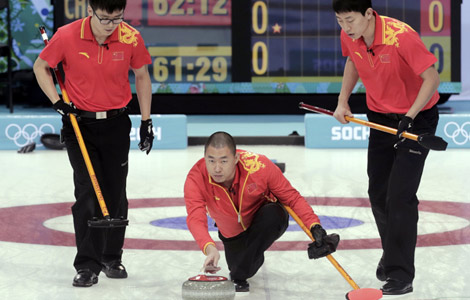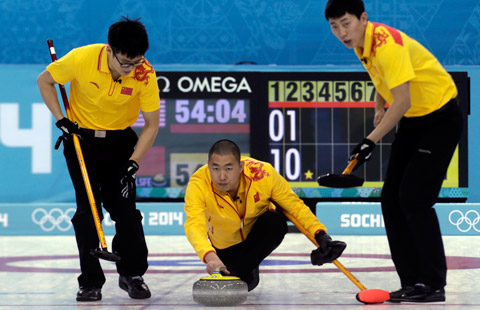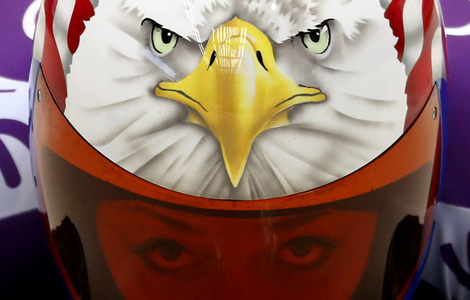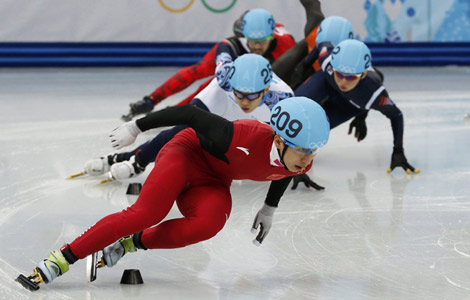Orser can identify with 'Canadian curse'
Updated: 2014-02-16 08:38:37
( China Daily) Reuters in Sochi, Russia
|
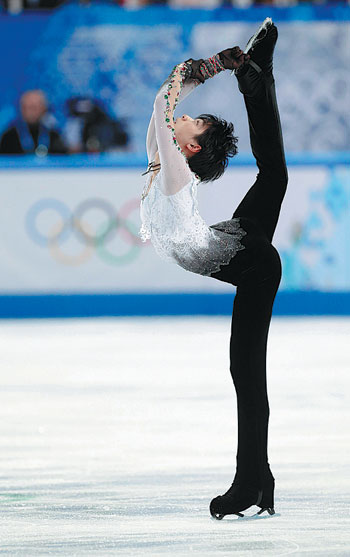 Gold medalist Yuzuru Hanyu of Japan competes at Sochi's Iceberg Skating Palace on Friday. Alexander Demianchuk / Reuters |
No one might better understand how three-time world champion Patrick Chan of Canada feels to have the Olympic gold snatched from him than compatriot Brian Orser.
Chan's silver is especially poignant for extending a string of near-misses stretching over three decades since Orser came just shy of giving Canada its first men's figure skating Olympic gold in 1984 and in 1988.
But Orser is also the most unlikely shoulder for Chan to find solace on after coaching his rival to an Olympic victory.
"It is so bittersweet in so many ways," Orser said of Yuzuru Hanyu's rise to Olympic gold since he began coaching the Japanese teen less than two years ago.
"I feel bad for Patrick of course because I'm Canadian and I don't want to be the enemy."
While Chan was fifth at the 2010 Vancouver Games, Orser was second at his first Olympics, at Sarajevo in 1984.
He won the short and long programs but lost to American Scott Hamilton due to his poor performance of compulsory figures - a segment of competitive skating since eliminated but from which figure skating draws its name.
Four years later - like Chan at the Sochi Games - Orser was the defending world champion and favorite going into the 1988 Calgary Games. But he lost to Brian Boitano by a fraction of a point in the so-called "Battle of the Brians."
Orser couldn't help but see echoes of that painful second, watching Chan let slip his chance to jump into first after an error-filled skate by both top men.
"Ahh, I know how it feels," he sighed, blushing and pinching the bridge of his nose, emotionally torn over his compatriot's loss for his pupil's win.
But he defended his career choices, saying: "Boitano had a Canadian choreographer and that made a big difference for his win in Calgary - a big difference."
Following Orser's Olympic missteps, Elvis Stojko had to settle for silver in 1994 and 1998, while Kurt Browning finished off the podium at three Winter Olympics, coming sixth in 1992 and fifth in 1994.
But Chan shrugged off what some have dubbed the "Canadian curse" after his second-place finish on Friday.
"I find it funny that Canadian skaters have been labeled as cursed just because we can't achieve gold at this one event," Chan told reporters.
"There was a lot of pressure to win the gold for Canada," he explained. "It is a chance missed, but I am a three-time world champion and two-time silver medalist at the Olympics now ... look at that as opposed to looking at a curse."
Long since his own medal disappointment, Orser has found redemption in coaching a slew of top world skaters, including guiding South Korea's Kim Yu-na to Olympic gold in Vancouver.
Kim is again a favorite in the women's event in Sochi, although she stopped training with Orser after the 2010 Games.
Orser was again rinkside at the Iceberg Skating Palace on Friday not only for Hanyu but another top-flight skater, Spain's Javier Fernandez.
He first wore a red blazer emblazoned over the pocket with the Spanish flag, watching nervously as Fernandez narrowly missed out on the bronze to take fourth place.
But he had swapped it for a grey Japan blazer by the time he went to share a high-five, fist-bump and hug with his star pupil to celebrate his win.
"I feel for Patrick. You know, it's tough. I am a coach, and if a skater comes to me to coach them along the way, if they are willing to trust in me, than I am happy to do so," he said.
"It's a sport and I have a job."
It was a job well done as Hanyu bowed to him backstage, saying "Thank you," before draping himself in the Japanese flag to take a victory lap, becoming the first Asian to win the men's Olympic figure skating title.
Photo Gallery
China Daily in Sochi
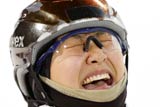
Xu sees silver lining in readying for 2018 Games
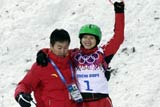
Li is bowing out on her own terms
Medal Count |
||||
|
1
|
|
7 | 3 | 2 |
|
2
|
|
5 | 1 | 1 |
|
3
|
|
4 | 6 | 5 |
|
4
|
|
4 | 5 | 3 |
|
5
|
|
4 | 4 | 6 |
|
6
|
|
4 | 3 | 7 |

